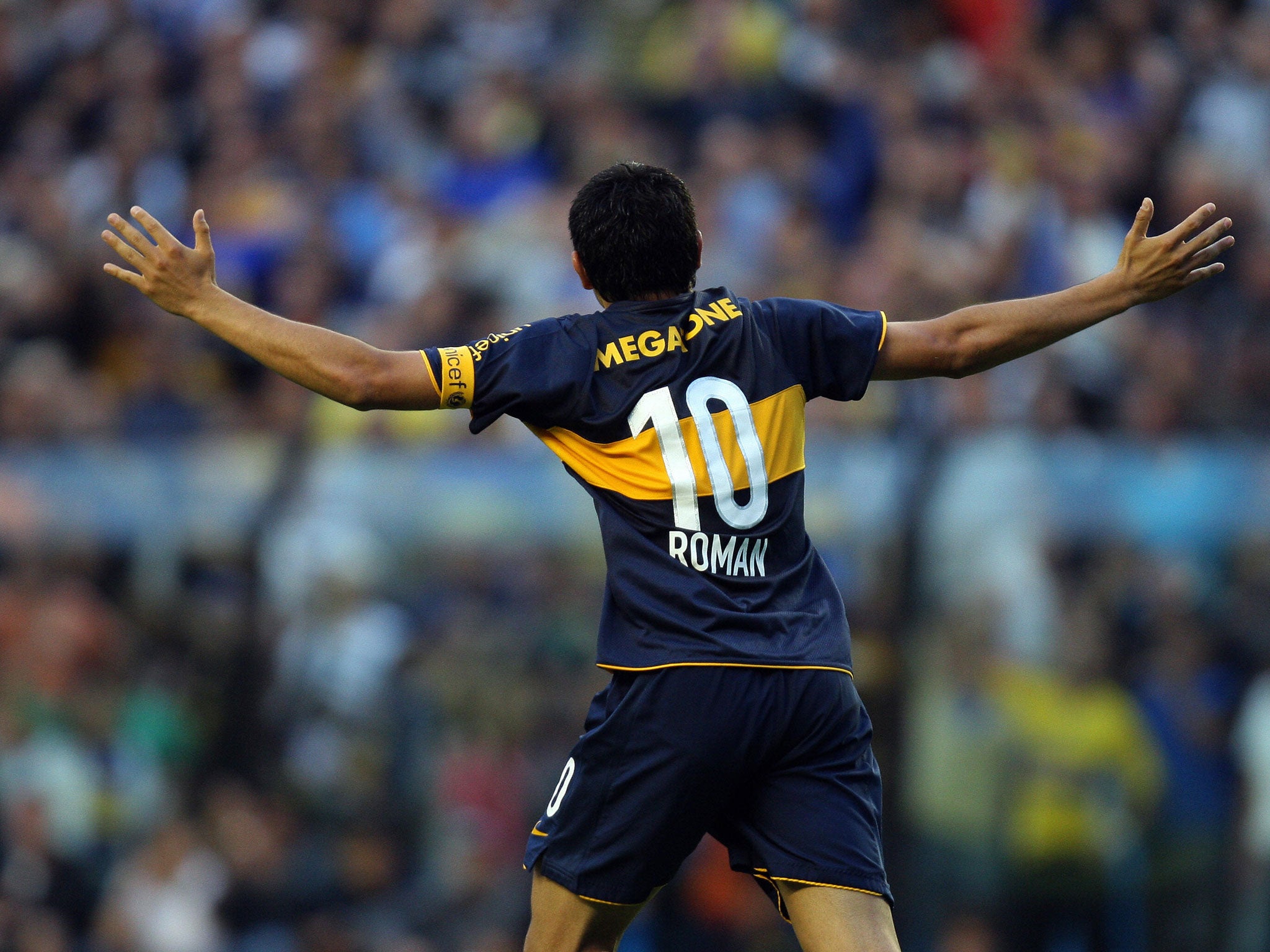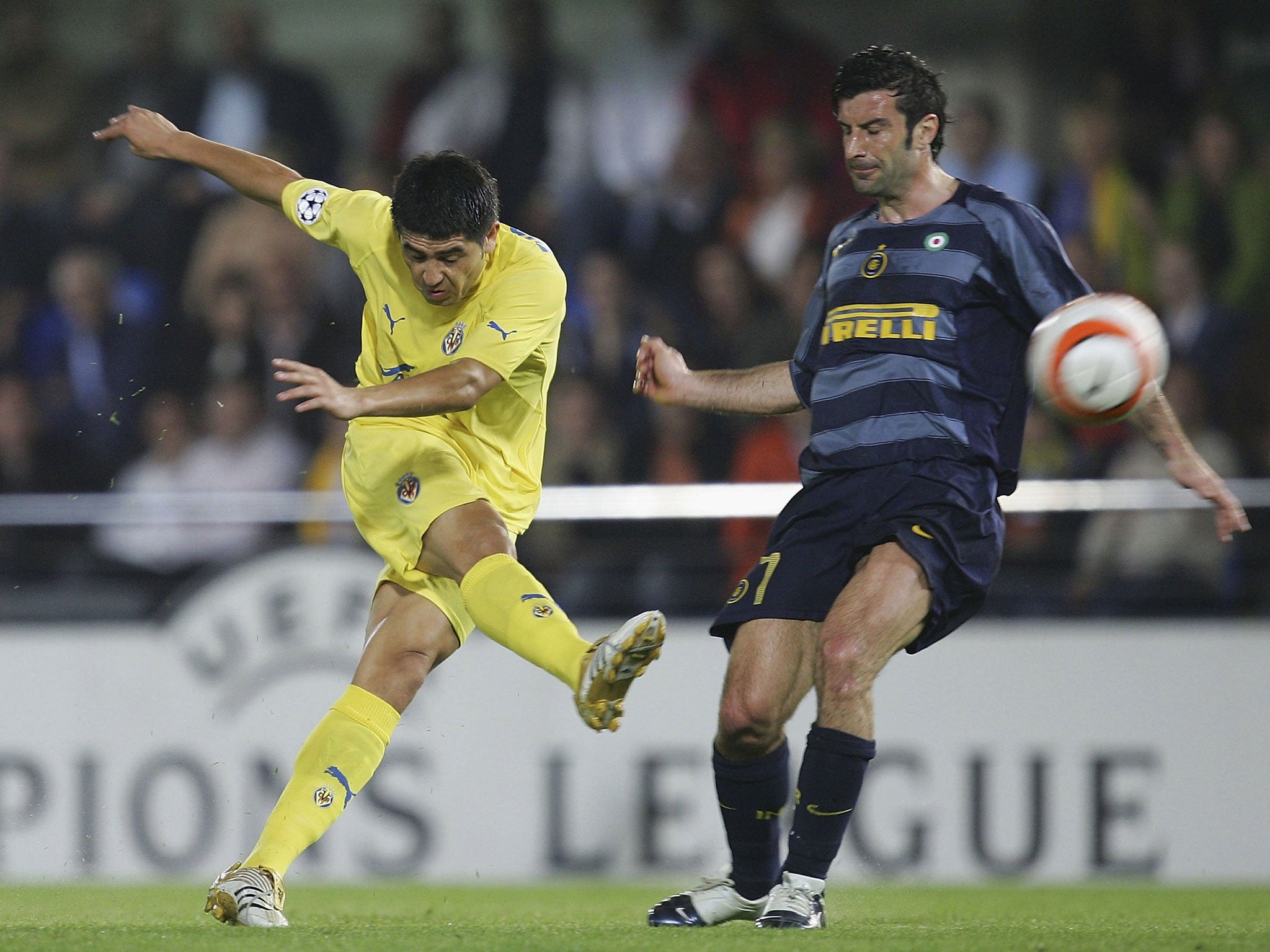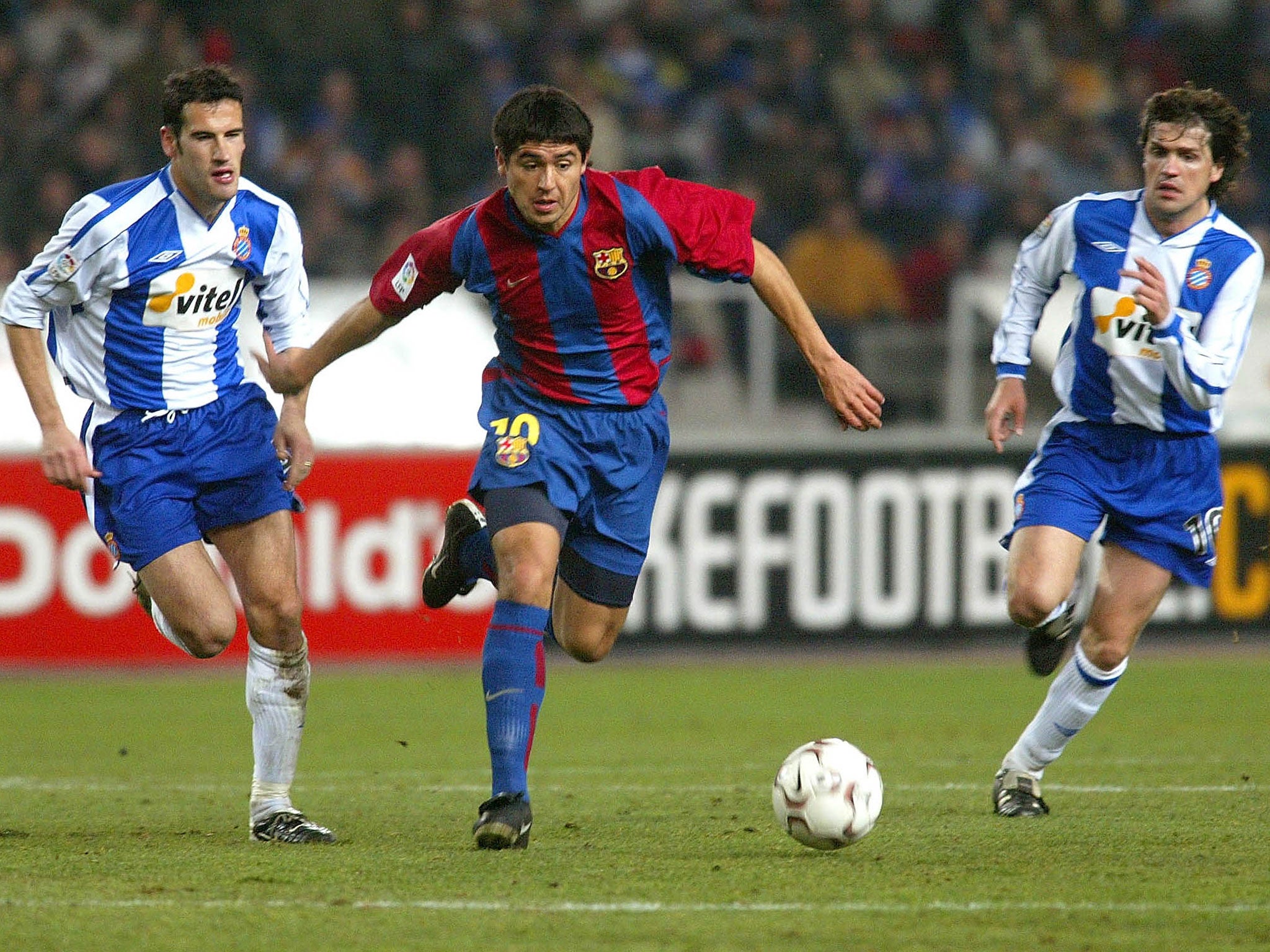Juan Román Riquelme retires: A rare, mercurial talent whose career was tinged with pathos
In the modern game he increasingly resembled a precious footballing relic

Your support helps us to tell the story
From reproductive rights to climate change to Big Tech, The Independent is on the ground when the story is developing. Whether it's investigating the financials of Elon Musk's pro-Trump PAC or producing our latest documentary, 'The A Word', which shines a light on the American women fighting for reproductive rights, we know how important it is to parse out the facts from the messaging.
At such a critical moment in US history, we need reporters on the ground. Your donation allows us to keep sending journalists to speak to both sides of the story.
The Independent is trusted by Americans across the entire political spectrum. And unlike many other quality news outlets, we choose not to lock Americans out of our reporting and analysis with paywalls. We believe quality journalism should be available to everyone, paid for by those who can afford it.
Your support makes all the difference.After 18 years, Juan Roman Riquelme has hung up his boots. The mercurial 36-year-old has threaded through his last defence-splitting pass, whipped his last free-kick goalwards and shot his last disdainful glance towards a lesser, mortal teammate.
With pace and power ever-more prevalent in the modern game, Riquelme has increasingly resembled a precious footballing relic, far more at home in the short-shorted, slow-moving, sepia-tinted official World Cup films of the 1970s.
Rarely has such a graceful footballer looked so burdened, his awkward shoulders hunched, his eyes permanently downcast. Sometimes, the game passed him by as he drifted around the midfield, blinking at the frantic action unfolding around him.

But on form, he was unplayable. A classic No 10, he made up for his lack of pace with mesmerising close control, flamboyant dribbling and exquisite vision. He had an innate ability to dictate the tempo of a game, rivalled only by Xavi and Andrea Pirlo among his contemporaries, and was a prolific goalscorer, particularly from dead-ball situations.
At his peak he was the best playmaker in the world, dragging the little-fancied provincial outfit Villarreal to third in La Liga in 2004/5 and single-handedly inspiring them to the Champions League semi-finals the following season, knocking out Man United and Inter in the process.
In Argentina he is venerated as part of a rich lineage of No 10s, a five-time Primera Division winner with Boca who orchestrated their 2006 World Cup side’s eye-catching displays until their premature Quarter-final exit.
And yet his career will always feel like a tragic missed opportunity.
He endured one frustrating season of being ignored by Louis van Gaal at Barcelona, making way for Ronaldinho just before Frank Rijkaard and Pep Guardiola turned the club around. 51 Argentina caps is a meagre return for such talent, although a return of 17 goals indicates the extent politics, rather than performance, denied him further international opportunities.

Even his successes were tinged with pathos. Villarreal’s Champions League semi-final against Arsenal was decided by a missed Riquelme penalty, and after setting up the opener in the 2006 World Cup quarter final he was forced to watch helpless from the bench as Germany equalised, and then clinched the tie on penalties.
An outsider on the pitch, he harboured a reputation for being a difficult, high-maintenance outcast off it. His spell at Villarreal, where he was afforded a free reign by Manuel Pellegrini, ended when Riquelme was just 28, after he simply refused to train. He never played in Europe again.
He returned to Boca, the club where he had risen to prominence in the late 1990s and a club which offered him the reassurance and indulgence that he craved throughout his career. Even in these cosy surroundings Riquelme retained his ability to divide a dressing room, his mere presence reportedly hastening the retirement of fellow Boca legend Martin Palermo in 2011.
If Riquelme harboured any regrets about the acrimonious end to his European career, he would never show it. Announcing his retirement, he said simply: “I enjoyed football to the maximum. I hope the people have enjoyed it alongside me.”
We have enjoyed it. And we may never see his like again.
Join our commenting forum
Join thought-provoking conversations, follow other Independent readers and see their replies
Comments